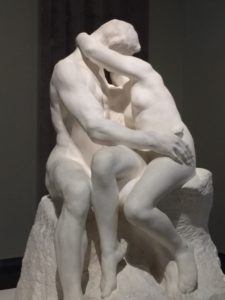From the Archives
I’m thinking about Cinderella today, oh I know there’ve been lots of face-lifts to the story to make it more modern, and I know the original fairy tale had some seriously dark stuff in it. The old Russian version has the evil step sisters cutting off their toes to try and fit their enormous feet into the dainty glass slipper! And the evil toe-cutters are exactly my point.
I’m thinking about how often women are portrayed in pop-culture as either wanting to or NEEDING to be willing to cut off their toes to spite their feet in order to be worthy of a Prince Charming to come and rescue them. I’m also thinking about how often that perfect beauty of tiny feet, tiny waists, big tits and gorgeous face are the main characteristics of the damsel Prince Charming rescues. In fact, they’re quite often the ONLY characteristics of the damsel in need of a romantic rescue. Sadly, we’re encouraged not only to read about that vacuous blank canvas of a damsel, but we’re expected, likewise, to want to BE her. That dream of being rescued by the prince on the white horse will surely become our reality if we can only cut off out toes and be Cinderella!
Okay, if I’m honest, at every single one of the difficult points in my life I would have been more than willing to be rescued from the struggles, or even at times I would love to be rescued from my ordinary life and brought into something more exciting. (That’s always a very dangerous thing to wish for!) And who hasn’t spent serious time ‘looking for a hero,’ even if it’s just in a really juicy fantasy.
Most of the time, though, we don’t get rescued. We have to do that ourselves, and we’re all the better for it. In the best situations, and in the best stories I’ve read, the hero and the heroine rescue each other, and they’re both worthy of the rescue.
I suppose the need to be rescued is archetypal, just as is the need to go on a quest, which is often only an elaborate way of rescuing ourselves. But the makings of a fictional hero and a heroine these days seem to have more to do with fat bank accounts and chaining virgins to the bed in an expensive dungeon and less about the journey that risks everything.
Oh, did I mention the journey? Right! The rescue, the quest, they always go hand in hand with the journey. And this is why, for me, Cinderella is one of the weakest tales. The journey is the leaving of our comfort zone – quite often screaming and kicking every step of the way. In that respect, no doubt Cinderella was outside her comfort zone at the ball, but in most journeys, there’s no glass slipper, no prince charming, and no fairy godmother dashing to the rescue. There’s much fear and trembling and digging deep. THAT’S what makes a book nail-biting and un-put-downable (there! A new word) It’s when chaos springs from the mundanity of order that heroes are made. And the resulting quest, the resulting journey is usually at least as painful as having toes severed to fit into glass slippers.
We rescue ourselves on a daily basis. We find within ourselves the makings of the hero, and we push forward. That little seed of the hero’s journey exists in all of us, and it’s never a matter of sitting in the ashes by the fireplace and waiting to be rescued. It’s a matter of getting muddy and mucky and taking risks and moving into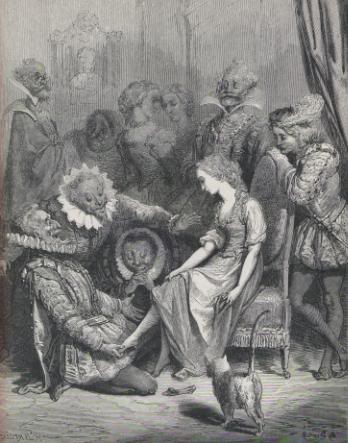 the places inside us that terrify us, but that pull us like magnates, nonetheless. We are our own heroes, and our stories – those of us who write stories, come from the deeper places in our selves – or at least they should if they’re ever to matter much.
the places inside us that terrify us, but that pull us like magnates, nonetheless. We are our own heroes, and our stories – those of us who write stories, come from the deeper places in our selves – or at least they should if they’re ever to matter much.
Am I being judgmental? Quite possibly. I never claimed not to be. But I know my own journey, and I know when I sit in front of the computer and break into a cold sweat because I fear the place I see myself heading, because I know I have no choice but to go there if this story is to be born, then I know that no one will rescue me but me, and I have to go deep into chaos to come out the other side as my own hero.
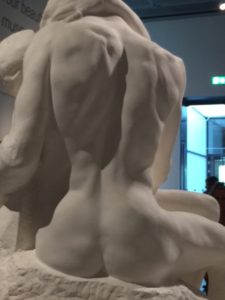 As a writer of erotic romance, I’m always trying to analyze the ways in which sex strengthens story. I’ve been very vocal in my belief that a story without sex is like a story without eating or breathing. Sex is a major driving force in our lives on many levels that I’ve dealt with in many blog posts. Because it is a major driving force in our lives it must also be a major driving force in story. Sex is a powerful way to create conflict and chaos in a story. It’s a way of allowing our characters to interact on an intimate level. And it’s one of the very best ways to cut through our characters’ facades and get an honest look at who they are when their guard is down and they’re at their most vulnerable. With that in mind, I’ve decided to share a few points that I always find helpful when I write sex scenes. For me, going back to the basics is always a great way to sharpen my skills. And I love to share the things that work for me.
As a writer of erotic romance, I’m always trying to analyze the ways in which sex strengthens story. I’ve been very vocal in my belief that a story without sex is like a story without eating or breathing. Sex is a major driving force in our lives on many levels that I’ve dealt with in many blog posts. Because it is a major driving force in our lives it must also be a major driving force in story. Sex is a powerful way to create conflict and chaos in a story. It’s a way of allowing our characters to interact on an intimate level. And it’s one of the very best ways to cut through our characters’ facades and get an honest look at who they are when their guard is down and they’re at their most vulnerable. With that in mind, I’ve decided to share a few points that I always find helpful when I write sex scenes. For me, going back to the basics is always a great way to sharpen my skills. And I love to share the things that work for me.

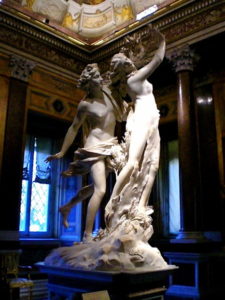 (archives)
(archives)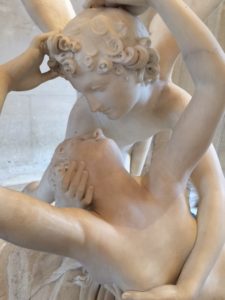 long as you like. Though, in truth, in my fantasy, I skip the dangerous and scary bits. And encounters with inspiration can often be dangerous and scary.
long as you like. Though, in truth, in my fantasy, I skip the dangerous and scary bits. And encounters with inspiration can often be dangerous and scary.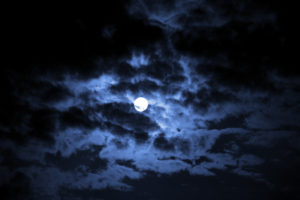 Today’s post is a hard one for me to settle into because it could so easily devolve into navel gazing, and one of the promises I made to myself and to my readers back when I wrote my very first ever blog post was that I would keep the navel gazing to a minimum. There must be a gazillion writer and write-hopefuls blogging, and each one is convinced that their journey to writing success is totally unique and must be shared. Well maybe not each one, maybe I’m only speaking for myself, in which case, I blush heartily and apologise.
Today’s post is a hard one for me to settle into because it could so easily devolve into navel gazing, and one of the promises I made to myself and to my readers back when I wrote my very first ever blog post was that I would keep the navel gazing to a minimum. There must be a gazillion writer and write-hopefuls blogging, and each one is convinced that their journey to writing success is totally unique and must be shared. Well maybe not each one, maybe I’m only speaking for myself, in which case, I blush heartily and apologise.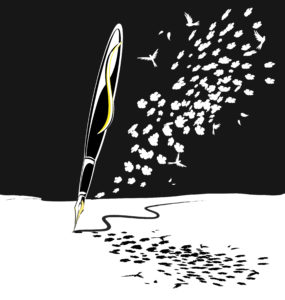 basis.
basis.